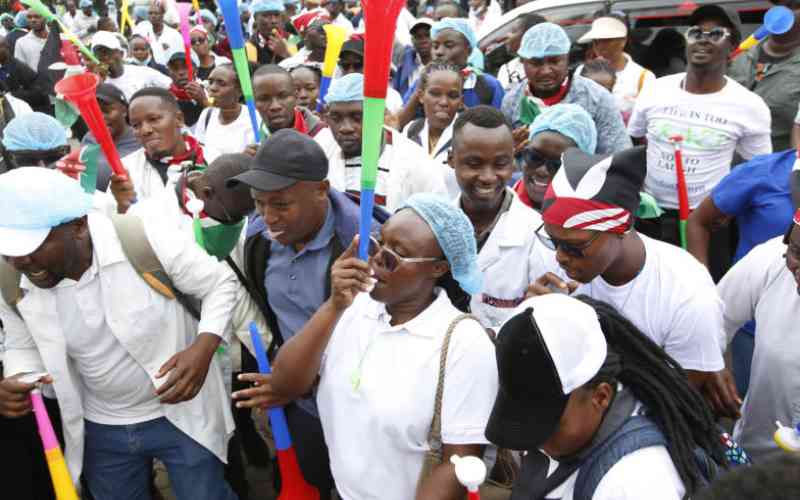
Despite President William Ruto championing the provision of universal health coverage, a cloud of uncertainty now hangs over the health of millions of secondary school students after the government terminated their comprehensive medical insurance.
The cover dubbed 'Edu-Afya' has been in use for the past four and a half years.
The decision, effective December 31, leaves parents and educators to figure out solutions amid the fears of potential impact on students' well-being.
 The Standard Group Plc is a multi-media organization with investments in media
platforms spanning newspaper print
operations, television, radio broadcasting, digital and online services. The
Standard Group is recognized as a
leading multi-media house in Kenya with a key influence in matters of national
and international interest.
The Standard Group Plc is a multi-media organization with investments in media
platforms spanning newspaper print
operations, television, radio broadcasting, digital and online services. The
Standard Group is recognized as a
leading multi-media house in Kenya with a key influence in matters of national
and international interest.











